Director Roland Emmerich regrets making 'Independence Day: Resurgence'
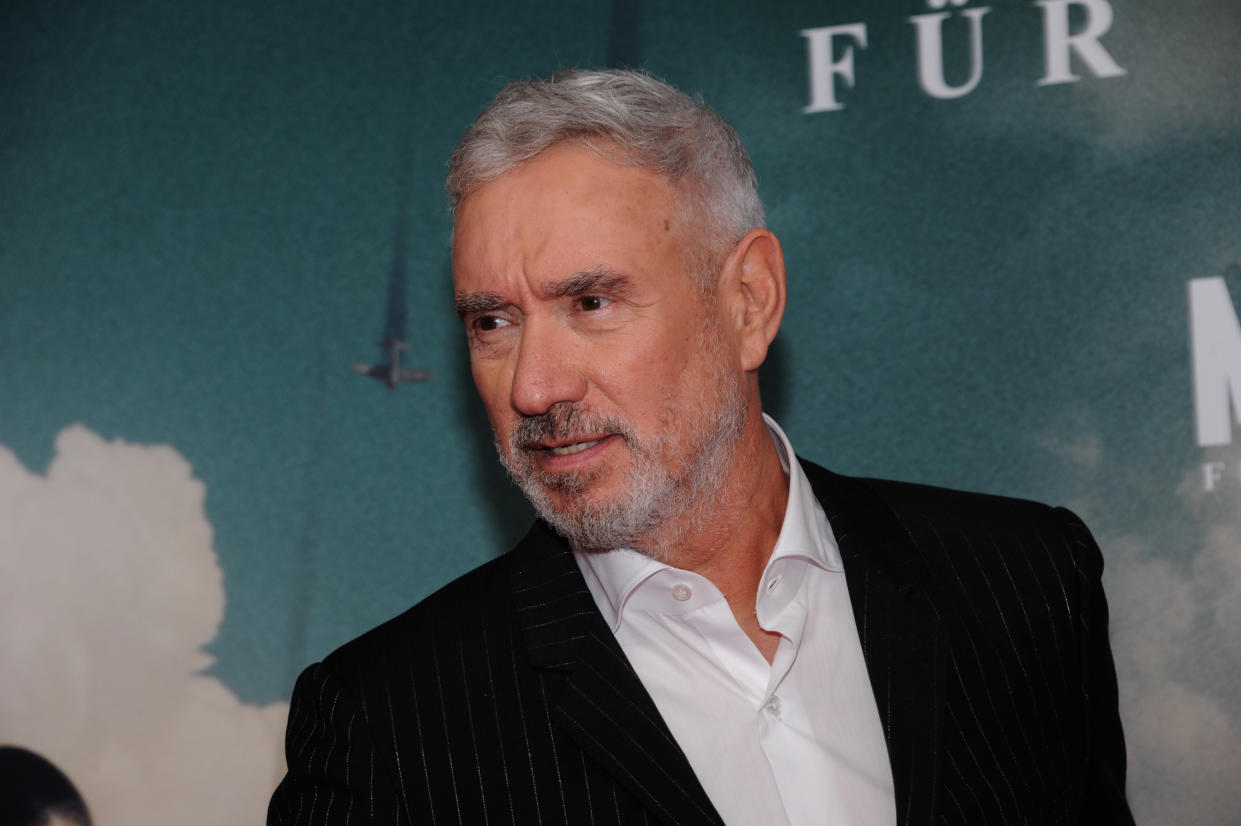
Roland Emmerich made his name making disaster movies but the director admits there was nothing more disastrous in his career than making Independence Day: Resurgence.
The German filmmaker, who returns to cinema with WWII epic Midway, says that he should never have made the sequel to his hit sci-fi blockbuster starring Will Smith and Jeff Goldblum.
The 2016 sequel saw the return of Goldblum and Bill Pullman, but not Smith, whose character, Steven Hiller, was revealed to have died. The film starred Jessie Usher as Steven’s stepson, Dylan, and Liam Hemsworth as the main alien-fighting heroes. It was both a critical and commercial flop, earning just $389.7 million at the box office, and it left Emmerich with serious regrets.
“I just wanted to make a movie exactly like the first,” Emmerich explained to Yahoo Movies UK, “but then in the middle of production Will opted out because he wanted to do Suicide Squad.
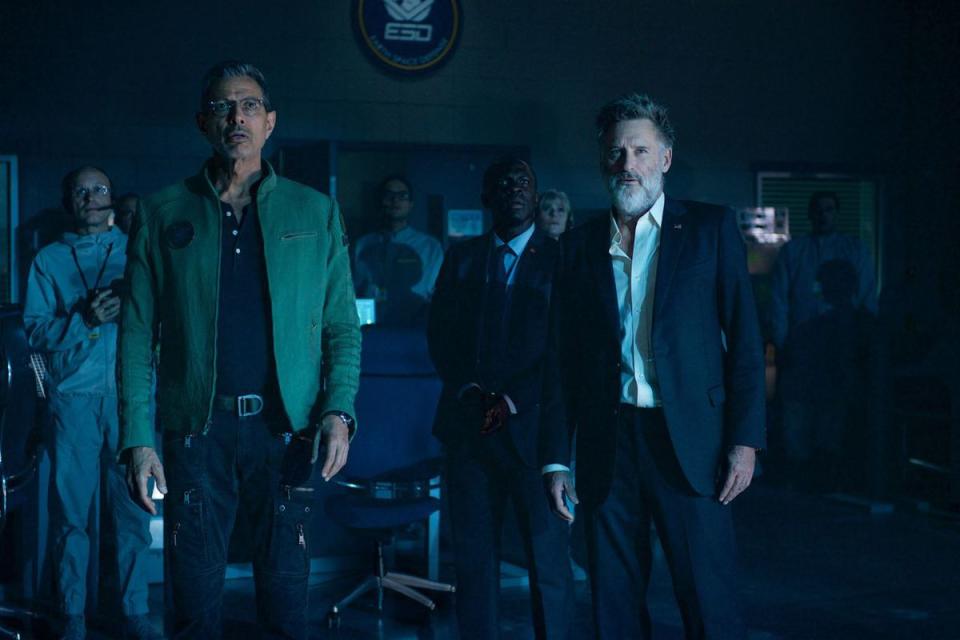
“I should have stopped making the movie because we had a much better script, then I had to really fast, cobble another script together,” he added.
“I should have just said no because all of a sudden I was making something I criticized myself: a sequel.”
The disappointment of making Independence Day: Resurgence is one of the reasons why Emmerich took such a long time to return to movie-making so he could return with a film he cared about.
That movie was Midway, which tells the true World War II story about the Naval conflict between American and Japanese forces in the Pacific following the devastating events of Pearl Harbor.
Keep reading for the full interview with Roland Emmerich, in which he discusses his latest blockbuster, the struggle of making movies and plans for a low-budget movie that will serve as a love letter to cinema...
Yahoo Movies UK: You’re known for making big action blockbusters. Was there a different approach with Midway?
Roland Emmerich: “This time around I just followed what history told us. In my other movies, I can just invent stuff but in this one, I couldn't do that so I had to stay really accurate.”
A lot of the time these big American World War II epics have a clear villain and hero, but this film shows a lot of respect for the Japanese. Why did you want to show the conflict in this way?
“It was really important to me to not only give the people the battle but also to do six months of history in order to tell the big combat story of the Americans. Secondly, I didn't want it to have triumphant things, like a cheering scene in a movie which has so many people die. And thirdly, I also wanted to respect both sides. That's probably because I'm German.
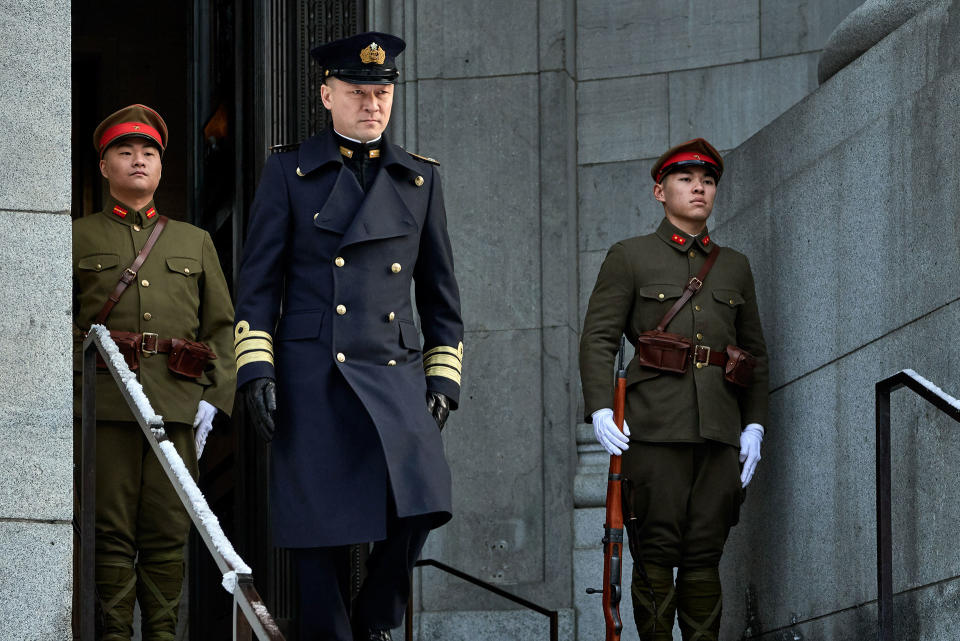
“My dad was fighting on the German side, but he was not a Nazi. I grew up with my dad saying, ‘Hitler was the biggest disaster ever happened to Germany,’ and he felt bad about it because he couldn't stop it, as a single guy, but he still felt deeply responsible for that. When you want to make a movie these days about war you cannot create new enemies, that doesn't make any sense to me.”
What is it about the American hero that he/she so often features in your movies?
“Very early in my life, as a young kid, I was exposed to American life. I twice went to America, when I was 13 and 14, and those were quite important dates for me because it's an age when you form some of your interests.
“One of my favorite movies was Planet of the Apes, which deeply affected me at a time when I hadn’t started to think about studying film or making movies. When I started going to the film school in Munich, I had just seen, in Paris, the original version of Close Encounters of the Third Kind, which is still today my favorite film, and I just didn't want to ever do what my other college peers wanted to do. They wanted to be the next Wim Wenders and I didn’t want to do that. I wanted to make movies that I liked and I really liked American movies.”
How much do you think the concept of the American hero has changed or stayed the same since you started making movies?
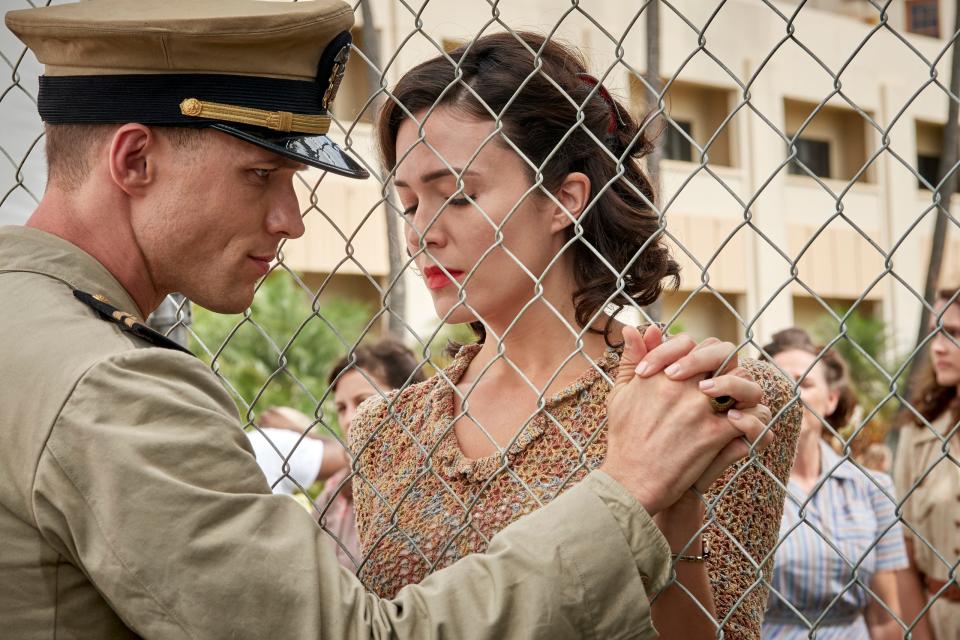
“I came to Hollywood probably just at the right moment when originality and all that was at the high point. And if you had good, new ideas, you were very successful. But now it's exactly the opposite. Everybody hates big new ideas and everybody wants to do the same movie over and over and over again.
“And it always has some sort of weird cape on.”
Is that why you did Independence Day: Resurgence, because the studio wanted it?
“Well, that was a little bit more complicated because I just wanted to make a movie exactly like the first, but then in the middle of production Will opted out because he wanted to do Suicide Squad.
“I should have stopped making the movie because we had a much better script. After I had to, really fast, cobble another script together. And I should have just said “no,” because all of a sudden I was making something I criticized myself, a sequel.
“Life sometimes happens a certain way ... but I’ve always been into American movies and I never could understand anything else.”
Does that explain the gap between Midway and Independence Day: Resurgence, so you could recalibrate?
“It was like that because I wanted to first do this movie with studios but they pretty much told me that they loved the script but asked if I could do it for $50 to $60 million. I said, ‘No.’
“It’s amazing that I could do it for only a $100 million because every other director would’ve asked for $150 million. They said, ‘there is just no basis for that,’ so I had to put it together independently, go out there and chase it. That took time.
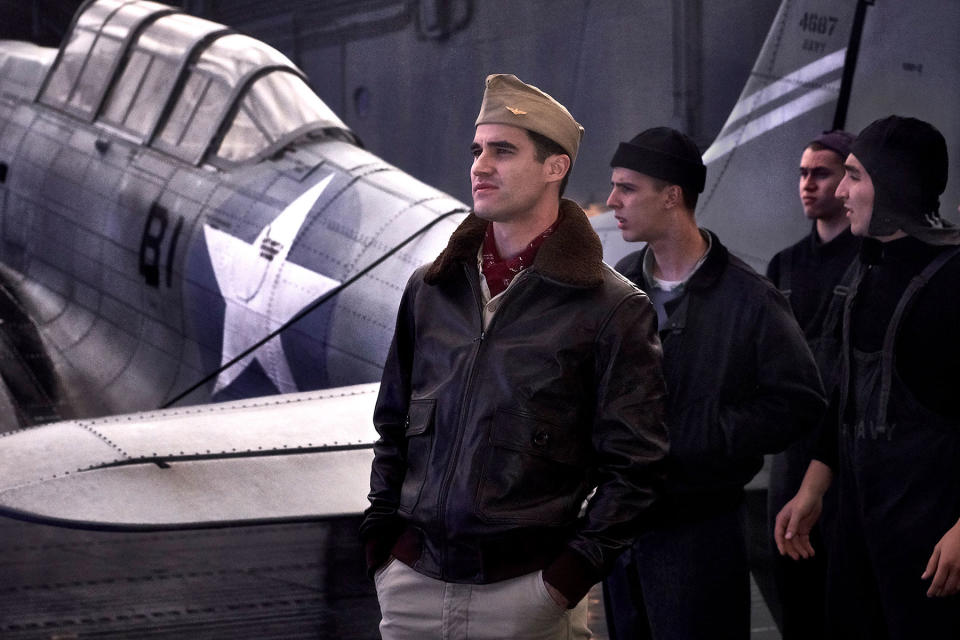
“I had to wait for the next Cannes, which was nine to 10 months away but luckily it was successful enough that we could start our movie. For my next movie, I actually said to Universal, who was supposed to do it, I said, ‘guys give the next movie back to me,’ as we had already put it together while we were working on Midway and would shoot that in April. It's always much more complicated than you think it is.”
Critics have historically not been as kind to your movies as the general public has. Is that frustrating or do you not care at this point?
“I’ve had to live with it my whole life so I'm just a little bit over it. Look, I have to test every movie so I know exactly how the audience thinks and know when it's not testing as well. That for me is then a real problem. But in Midway, for example, we had incredible tests. The audience really embraced it and that’s what I really like about this job, that you can sit in a theater with 450 people and they have really high scores for the film. That's what’s really fulfilling.”
What do you think it is about World War II that it is such a popular source for cinema?

“It’s because it’s about democracy or the free world against fascism which is a very simple idea to understand. I have to say, I'm quite happy that this movie didn't come together when I wanted to make it 20 years ago because now, when you look around and see nationalism is on the rise, right-wing theories on the rise, the whole world is becoming a little bit more of a dangerous place, it’s great to show that 75 years ago, some people died for freedom and to defend democracy against fascism. Maybe that's a perfect time to show a movie like this.”
Do you think the power of cinema can have that effect on people, that it could influence them?
“It can help a little, it’s all baby steps. Now everybody thinks The Day After Tomorrow was a genius thing but at that time, they didn't think it was that genius.”
You were well ahead of the climate change curve.
“Well the movie was super-successful so I'm happy about that but it’s actually a little bit frustrating because I remember at that time people, at least in the newspapers, they were laughing and saying you shouldn’t believe that. Well, they're not laughing anymore.”
Well, certainly for popcorn cinema, your movies have a lot of deeper messages. Do you think they’re easier to digest in this way?
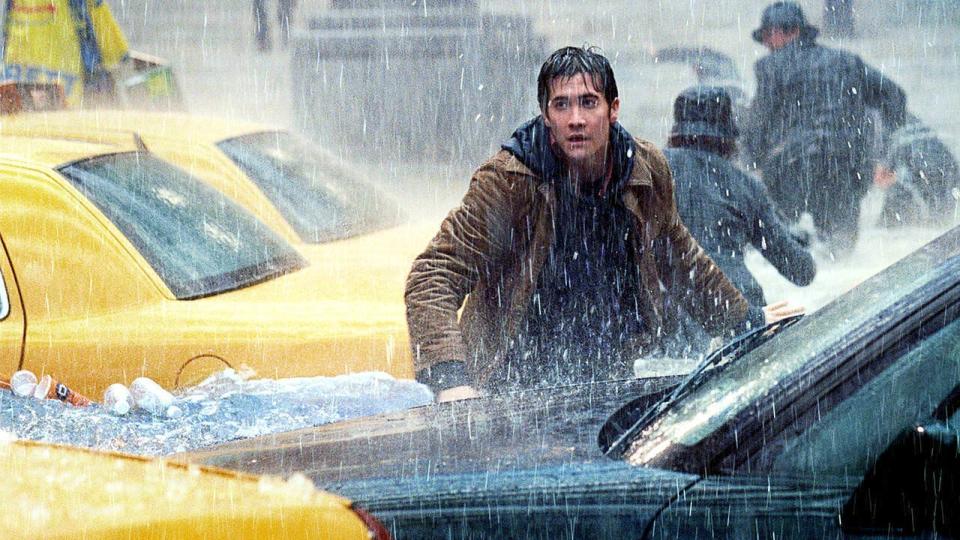
“I try to put humor in my films, and when there’s not a laugh after 10 minutes of my movie I get nervous. Secondly, I always try to provoke things, I mean, in The Day After Tomorrow I had Americans illegally entering Mexico which was a huge laugh. You can put these messages into movies but you can never ever loudly say so because it's entertainment — 95 percent should be entertainment.”
So what were the last movies, not your own, that truly entertained you?
“One was Call Me by Your Name, That deeply affected me because it was the time when I grew up so I knew exactly what he was talking about. Then there was Logan. Those were the last good movies I saw.”
Interestingly with Logan, it’s a completely standalone film rather than a sequel. I know you turned down making a Spider-Man movie in the past but if you could do a standalone, original comic book movie would you?
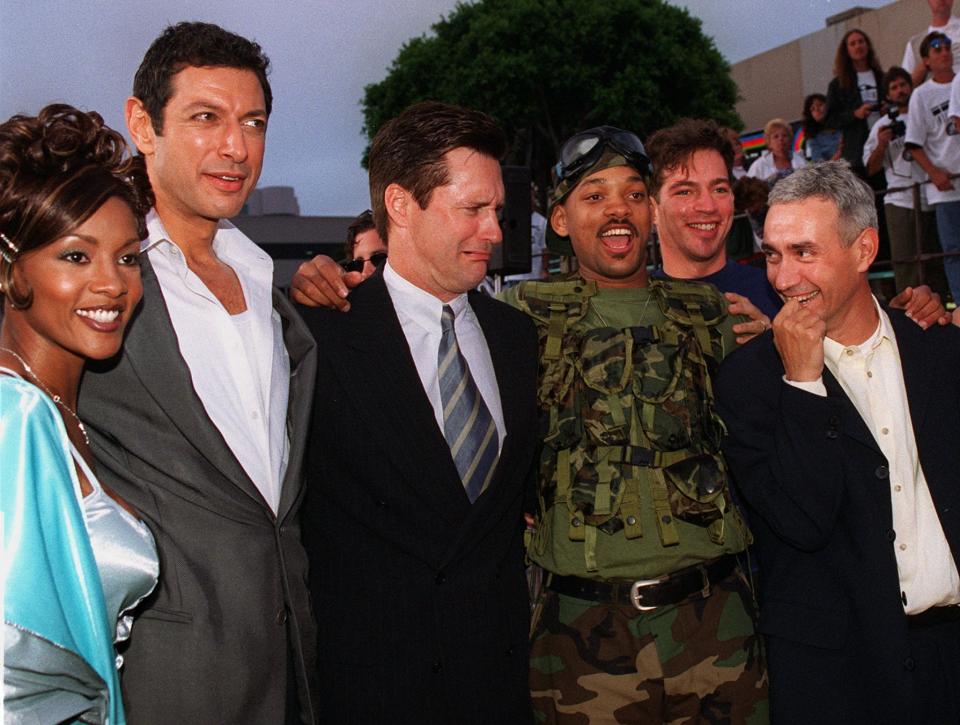
“I don't think they would let me and I don’t think I would be a good director for something like this. Don't forget, the director of Logan, [James] Mangold, he was constantly told, ‘You have to put this guy in and you have to put that guy in,’ and every time he just jumped on the line, and said, ‘OK, if you want to have fun Deadpool in it? I walk.’
“That's a harsh thing to constantly have to do, but he did that and because of that, it's so good. It’s good because he fought for it.”
Would you have like to do something as low-budget as Call Me by Your Name?
“It depends, I have certain movies in the pipeline always and I always want to develop stuff. For example, after my next film which is bigger than this one, I want to do a smaller one, which is my love letter to films. It takes place mainly on a silent movie shoot because I always felt drawn to the beginnings of Hollywood. One of my all-time favorite movies is Cinema Paradiso, so I said I have to do a love letter to movies, too.”
Midway is in theaters from Nov. 8.
Read more on Yahoo Entertainment:
Role Recall: Richard Gere Looks Back on 'Pretty Woman', 'American Gigolo', 'Primal Fear', and More
Roll Recall: Willem Dafoe Remembers Roles in 'Platoon,' 'Spider-Man,' and 'Finding Nemo'
